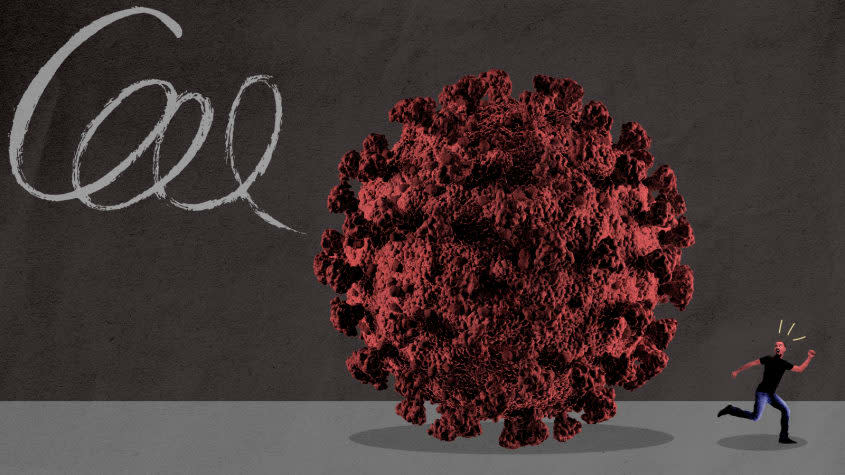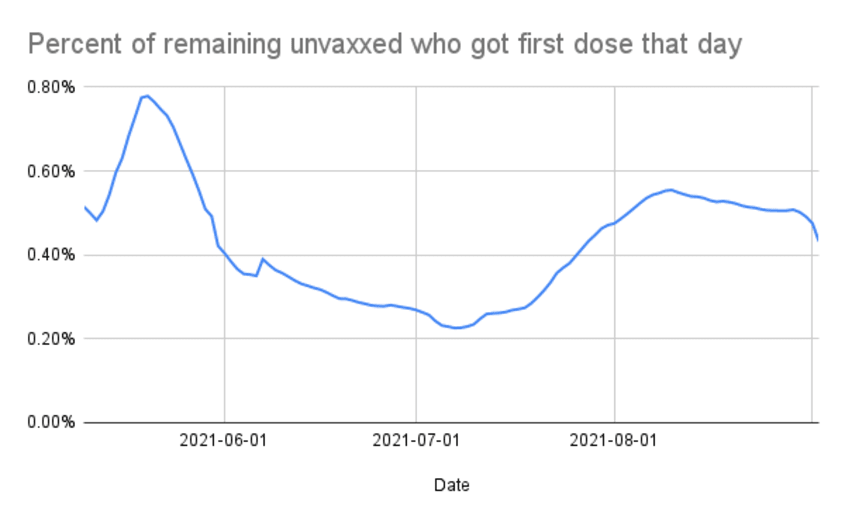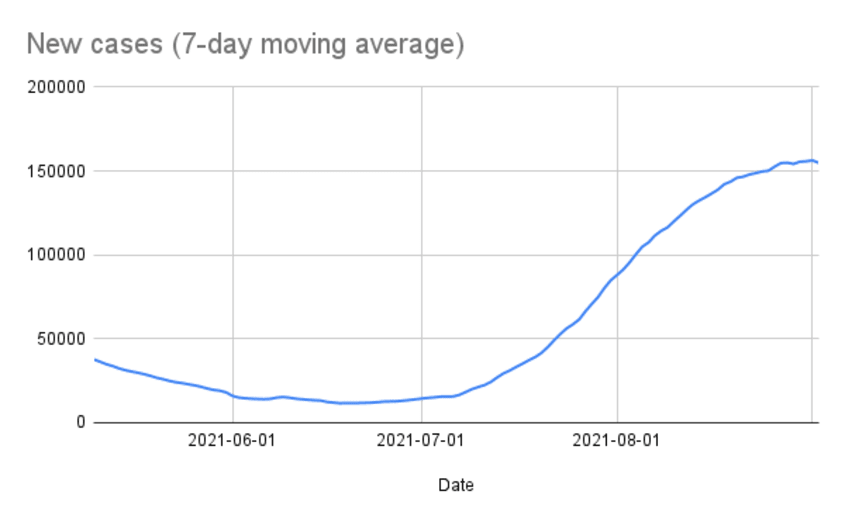What actually convinces people to get vaccinated? Fear.

The main reason people get vaccines is fear. They are afraid of how a disease would negatively impact them, their family, or their community, so they want protection against it. People get vaccinated when they fear the disease more than the vaccine.
While it is not a pleasant way to persuade people of anything, fear has almost always been a very effective persuasion tool. Yet some writers like The Atlantic's Elizabeth Bruenig tell the media to "Stop Death Shaming" the unvaccinated when they die of COVID-19. Bruenig claims that if we want to persuade people to get vaccinated against COVID, highlighting individual stories of people suffering horrible deaths as a result of not taking the vaccine and being filled with regret in their dying moment is not a good idea. However, the data would imply this thinking is simply wrong.
The vaccination trends paint a pretty picture. The less the unvaccinated heard about COVID deaths and cases, and the negative consequences of getting the disease, the less likely they were to get vaccinated. When news stories of rising cases, horrible deaths, and the Delta variant were featured more prominently, you saw more people getting the vaccine. Compare these two charts.
This first chart, made with data from the CDC COVID Data Tracker, shows what percent of eligible people who are still unvaccinated get a vaccine each day based on a 7-day average, which makes the trend very clear. The chart starts when the FDA approves the vaccine for ages 12-15. There is a big increase followed by a slow, steady decline until early July, when the number of newly vaccinated as both a raw number and a percentage of those who needed to be reached started going back up.

CDC COVID Data Tracker
As the second chart shows, this increase began right after new cases started rising and, as Google Trends suggest, people and news outlets started paying way more attention to COVID again.

CDC COVID Data Tracker
The numbers suggest that the FDA fully approving the Pfizer-BioNTech vaccine on August 23 did not make a significant difference. On the other hand, awareness of the deadly threat — increased at least in part by the "death shaming" of unvaccinated individuals dying from COVID and alarming stories of illness — seems to actually work at convincing people to get vaccinated.
According to polling by KFF, 53% of the unvaccinated think the vaccine is a bigger risk to their health than getting COVID. That number is 75% among those who claim they will definitely never get the vaccine.
As long as many unvaccinated people are more afraid of the vaccine than the disease — whether due worries about side effects, fear of needles, conspiracies about microchips, delusions that COVID is a hoax, or an over-confident trust in their own immune system — they aren't getting vaccinated. Convincing people the vaccine is safe helps address one side of this mental equation, but stories that highlight how horrible death by COVID can be are also an effective way to change the calculation.
You may also like
Is rural America becoming a new Confederacy?
LAPD's mass collection of social media data alarms activists: 'This is like stop and frisk'

